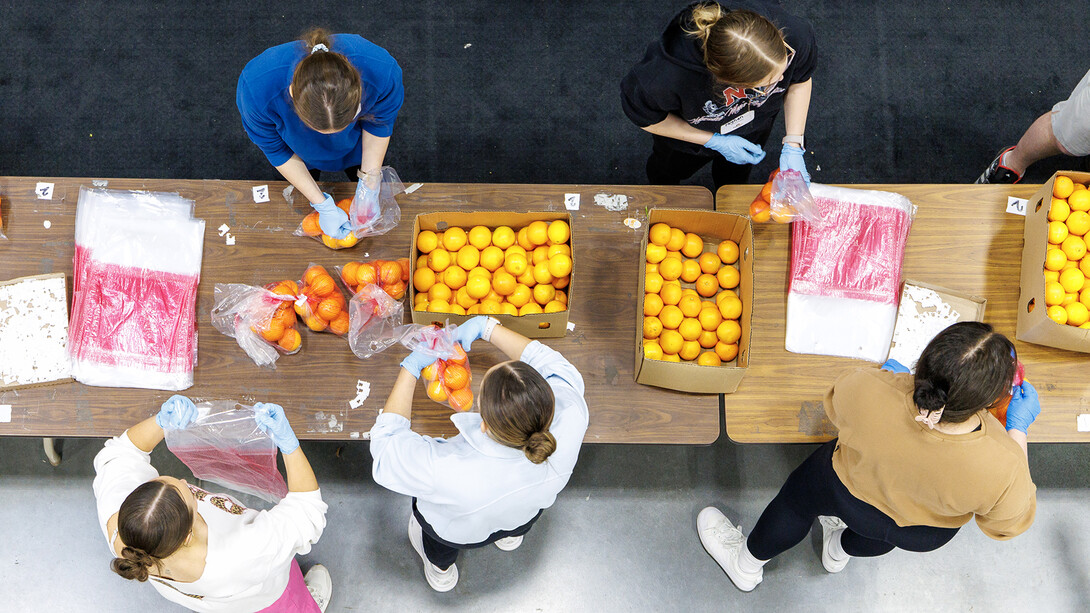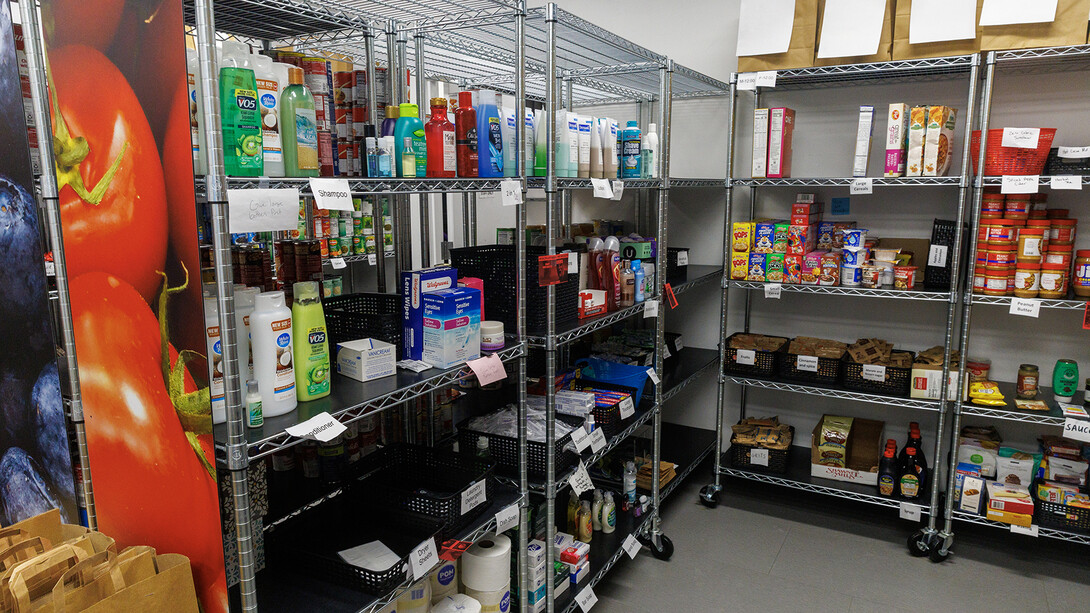
Skipping meals and surviving on instant noodles was once seen as a normal part of the college experience. Today, it can point to a more troubling trend of increased food insecurity on campus.
At the University of Nebraska–Lincoln, a partnership between Student Advocacy and Support, Husker Pantry and Food Bank of Lincoln is working to change that pattern by helping more students access Supplemental Nutrition Assistance Program (SNAP) benefits. A federal program, SNAP provides funds monthly to help those who qualify purchase groceries.
The SNAP enrollment project, which launched this fall, offers students a chance to meet one-to-one with SNAP coordinators, see if they qualify and, if so, apply for the benefit. No-appointment-required sessions are offered every Thursday from 1 to 3 p.m. in the Jackie Gaughan Multicultural Center. Additionally, the project is hosting daylong support events on Oct. 9 and Nov. 5. The sessions are an expanded opportunity for students to complete the application process through 30-minute appointments with SNAP professionals.
“Our objective is to connect students with the support they need to successfully complete SNAP applications,” said Sarah Frankel-Russell, director of Student Advocacy and Support. “It is a complex process, and having a knowledgeable professional available ensures students are not navigating it alone.”
The project stems from a broader trend to ensure students have access to basic needs as they pursue a degree — a challenge university staff have seen grow in recent years. During the 2024-25 academic year alone, 105 Huskers requested assistance through Student Advocacy and Support’s emergency fund. Of that total, 22% identified going hungry as a primary concern.
What Huskers are experiencing is also reflected in data from the national level. In its most recent survey of student basic needs, Temple University’s Hope Center reported that 41% of college students experience food insecurity, with 59% lacking at least one basic need related to food or housing.
“This should not be normal and we should work to dispel the myth that, as a college student, you’re supposed to be living on 99 cent ramen packets,” said Kenji Madison, director of student culture and community, and Husker Pantry. “SNAP is an opportunity to offer our students in need access to nutritious meals that will have direct impacts on their academic successes.”
Students who work part-time, are in work-study programs, or hold graduate assistantships are often eligible for SNAP. Nationally, the U.S. Government Accountability Office reported that 69% of potentially eligible college students did not receive the benefit.
Once approved, students typically receive benefits within two weeks, assuming no delays or missed appointments. Recertification is required every six months and involves a similar level of effort to complete.
“There is a lot of nuance in the application process and it can take some time to complete,” said Frankel-Russell. “Our hope is that by offering this service with the Lincoln Food Bank, we can remove some of those barriers and make it easier for students to get the support they need without added stress.”
Faculty and staff can help normalize the use of support programs by integrating Student Advocacy and Support information — including SNAP and emergency funding programs — into advising sessions and departmental communications. Employees are also encouraged to donate to the Student Hardship Fund to help expand support.
“One of the simplest ways you can do is ask a student what they ate today,” Madison said. “If they tell you they haven’t eaten anything, get them connected with us.
“There’s ample amounts of food on this campus and, if we work together, there are opportunities to make sure that they are fed.”
Learn more about how students can access SNAP benefits and other support programs through Student Advocacy and Support.









